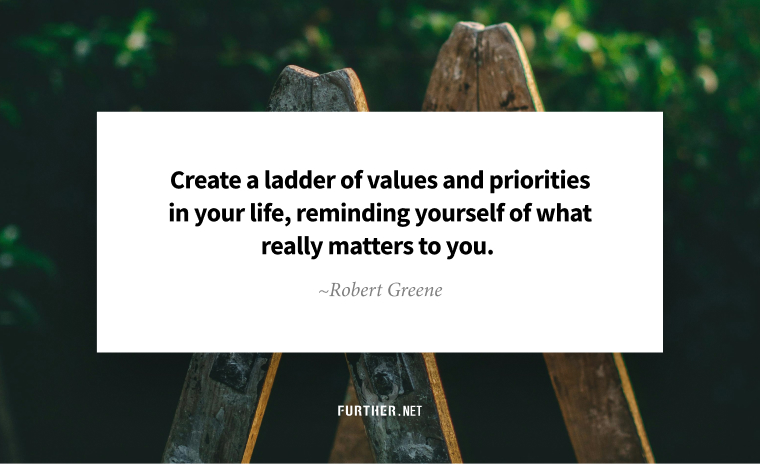
Back in 1930, economist John Maynard Keynes predicted that by the year 2000, technology would advance to the point that we would only have to work 15 hours per week, tops. This would in turn leave us time to pursue creative endeavors, hobbies, and charitable works.
That didn’t happen, obviously. Instead, technology eliminated jobs but then created other, arguably less fulfilling careers. These jobs are best described as “administrative,” and cover a broad range of roles from middle management to corporate law.
Now, as we watch the roll out of generative artificial intelligence, these administrative jobs are threatened along with many creative careers at the same time. While the pundits say new jobs will be created from the destruction as in the past, this time may be different due to the unique nature of the technology – and even if so, these new jobs may be even worse than the “meaningless” administrative roles that are eliminated.
People who find meaning and purpose in their work often have no strong desire to retire. Those who have “meaningless” jobs can’t wait for retirement day, only to find that meaning still eludes them in the “golden years” they’ve waited so long for.
The best definition of the Japanese concept of Ikigai is “the reason to get out of bed in the morning.” It’s depressing if the only reason you’ve got is to pay the bills via drudgery.
There’s a meme on social media about A.I. that says, “I want AI to do my laundry and dishes so I can do art and writing, not for AI to do my art and writing so I can do my laundry and dishes.” Corporate jobs in the near future will likely have you babysitting A.I. even while it monitors your “productivity.”
The only people A.I. benefits are the owners of the company. If you have your own firm (even if it’s just you), you can have the robot do the laundry and dishes (i.e. the stuff you don’t want to do) while focusing on the human, creative elements.
Remember, though, that if you’ve over 50 and have a corporate job, you definitely need to watch your back — from the humans higher up in the organization. They’re the ones looking to get rid of you.
Further reading:
Will A.I. Kill Meaningless Jobs? (New York Times gift article)
Keep going-
P.S. New to Further? Join us here.
Avoid the Unforced Error
Why are Gen X and Millenials more likely to get certain types of cancer than their parents’ and grandparents’ generations? The answer probably lies in changing lifestyles and behavior.
Millennials and Gen Xers face higher risk of 17 cancers than previous generations, study suggests (CNN)
Magnesium Force
Can taking a magnesium supplement before bed help you sleep? Maybe, but there’s no definitive proof that it does. Odds are you aren’t getting enough magnesium from your diet, though, which is why it’s one of the few legit supplements that you need.
Americans Don’t Get Enough Sleep. Can Magnesium Supplements Help? (NPR)
Shelter From the Storm
More than half (56%) of Americans said they have anxiety about rising costs, financial losses, or even health effects from extreme weather events or natural disasters. In addition to general cost of living issues, expect more people to “country shop” based on climate change.
Climate Change And Extreme Weather Are Making Retirement Even More Stressful — And Expensive (MarketWatch)
Social Insecurity
A cautionary tale that will become all too common given longer lives and less retirement savings. Yes, Gen X will work longer, but on whose terms?
A Boomer Lives On $1,800 Monthly In Social Security And Worries About Her Future: ‘What Am I Going To Do?’ (Business Insider)
Make Your Life Matter

By Trudi Roth
It’s natural for your values to shift at midlife. After all, you’ve earned your crystallized intelligence and are likely more motivated than ever to find meaning and purpose in your endeavors.
But hiking back up that U-shaped happiness curve isn’t easy. You’ll need to check your internal compass to ensure it’s guiding you to do things that truly matter to you and, ultimately, your legacy.
It sounds lofty, but it’s simple: do a values check. When you remind yourself of what’s important, it’ll be much easier to move forward.
Face Value
Throughout your life, you’ve undoubtedly been told to “stick to your values” when challenged by others or even your own indecision. That works well if you’re crystal clear on what you care about most but less effective if you’re unsure if what you once held dear still serves you.
For example, ambition may have been a driving force when you were younger, but now that you’ve aced your professional goals, that might feel hollow. Or you might value friendship, only to recognize keeping up with everyone you consider a pal is exhausting.
It helps if you understand what a value is in the first place. According to Valerie Tiberius, author of What Do You Want Out of Life?: A Philosophical Guide to Figuring Out What Matters, it’s not just something handed to you by your religion, parents, or teachers. Values are deeper than simple beliefs or desires, as feelings are involved.
Values are relatively stable, emotionally entrenched, reflectively endorsed, important goals that exhibit patterns of mutual reinforcement.
In other words, if you value something, you want it on all levels: intellectually, emotionally, and spiritually. If you do, it’s much easier to discern the next right action for you.
Standard Practice
To properly reflect on your values, you must go beyond simply writing a list of things you think you cherish. Identifying the things that matter most to you isn’t always rational, so Tiberius recommends a more organic approach.
For example, take note of when you’re in flow. If you lose yourself in knitting or painting, for example, then creativity is a core value. Conversely, if you’re working on a project that consistently makes you stressed, annoyed, or bored, it’s likely not a worthy goal.
Another route Tiberius offers is more philosophical: Imagine you had to move to another planet. What handful of things would you take (not including your loved ones)? Your gut choices reflect what matters to you, whether it’s a pet (animal rights, unconditional love), a musical instrument (self-expression), or a memento like a seashell (🙋♀️nature).
Understanding what you value isn’t just an excellent way to get things done. It’s also the only way to ensure that what you do is aligned with who you are. That’s a surefire path to fulfillment, and it’s truly invaluable.
A philosophical approach can help you identify what truly matters (Psyche)
further: flashback

*NSYNC – Bye Bye Bye
No Strings Attached, 2000
Whaaaa? *NSYNC in the Flashback? Has reputed boy band hater Brian been taken hostage and this is his distress signal? Welp, thanks to the opening scene of a certain blockbuster film, Bye Bye Bye is now stuck in the heads of millions. Only fair that it happen to you, too. (YouTube)
further: sharing
Enjoy this issue? Please forward this email with friends or share on social media.
Thank you for sharing Further!
